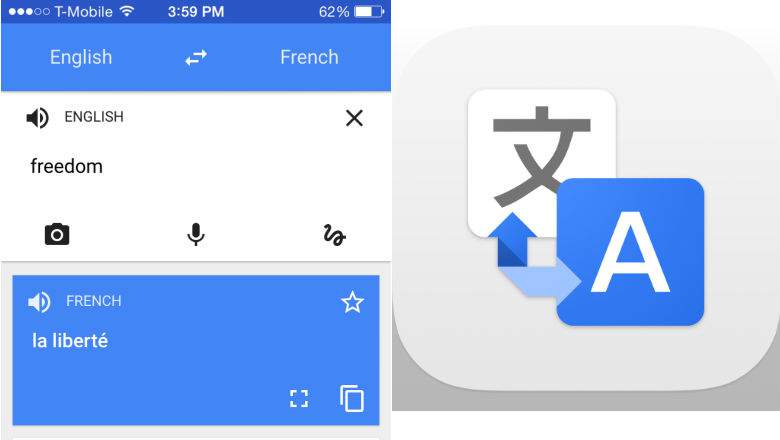Google got kicked out of China in 2010 because the company refused to submit to what is famously known as the “Great Firewall of China”, which requires companies operating in the country to submit to government censorship and keep customer data ready for authorities’ consumption as and when they need it.
That’s not something our tech giants were able to digest because, if they accept Chinese Internet rules and turn over customer data, they will gain China but lose the entire world.
Google has now re-introduced its Translate mobile app in the country, and the move seems to be more of a brand-building exercise for reaching out to Chinese customers rather than a money-making one. The app comes with Word Lens, which is powered by machine learning, and can help users read letters from an image. The best part is, the feature doesn’t even need an Internet connection to work.
The company has released version 5.8 of the Google Translate apps for iOS and Android. It will allow user to do visual translations between English and Korean, and improve the experience for users in China. The web app for Google Translate has been available to Chinese users for nearly a decade, and users can now download the Android app here and the iOS version here.
Google Translate allows you to type, write or even talk to the app, and it will get the translation done for you. There is also an option to download a language pack and use offline translation, or use Tap to Translate to get the translation done inside other Android app, such as the camera app, without having to switch apps. See an example of that in the gif image below:
In a post on its Chinese blog, Google uses carefully worded language, and mentions things like “break down language barriers”, “connecting people around the world” and “better for Chinese users.”
To be honest, we don’t really see this going anywhere for tech giants, because China is never going to give up its need to stay in control of the narrative in the country. As far as we know, it will always require tech majors to submit to its censorship rules and be ready to turn over customer’s data, and tech companies will never accept such a mandate because they will lose face in other parts of the world.
Will Tim Cook be able to turn down the FBI’s request to build a tool to unlock iPhones when they allow the Chinese government to do the same? We don’t think so. If they submit to Chinese control over data, then they will have to be ready to offer the same facility to governments all over the world. For now, tech majors are learning to live with what is digestible for them in China, and stay within the limits that their mandates specify.
Thanks for reading our work! Please bookmark 1redDrop.com to keep tabs on the hottest, most happening tech and business news from around the world. On Apple News, please favorite the 1redDrop channel to get us in your news feed.




